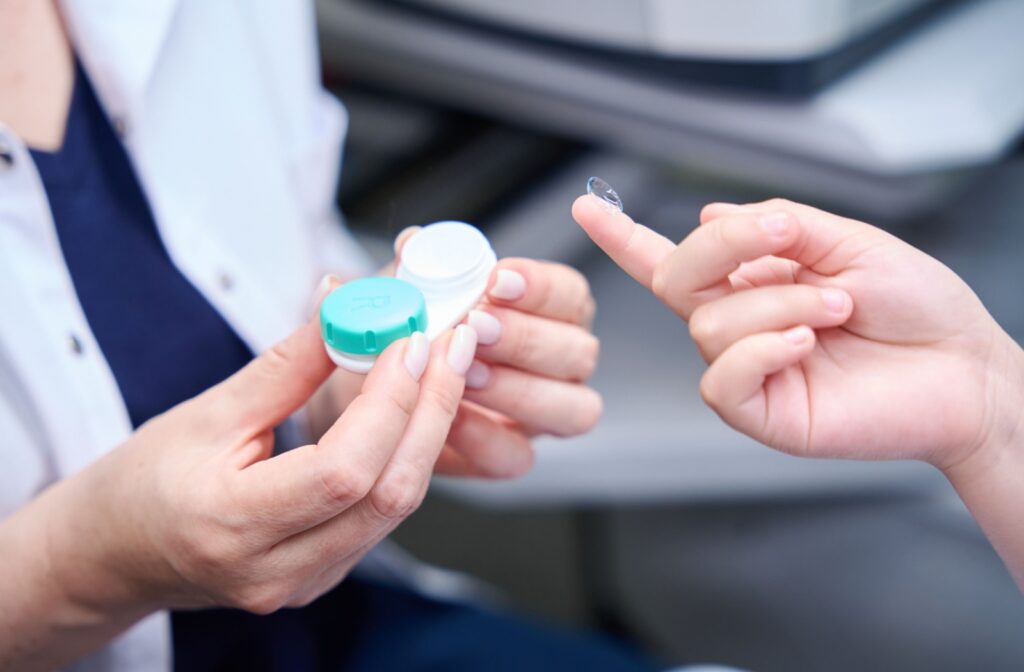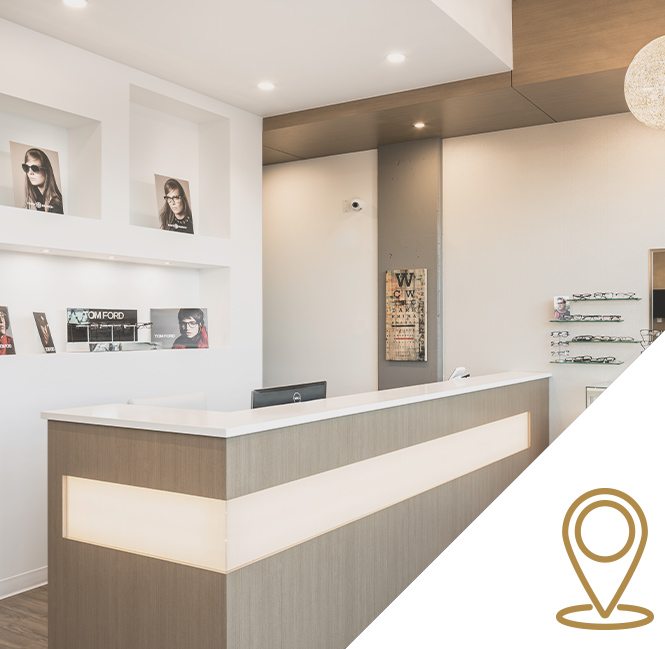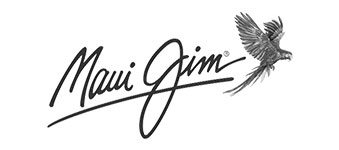Making the switch to contact lenses can mean clearer vision and greater freedom from glasses. Many people find contact lenses convenient, but caring for and wearing them safely can raise important questions. For example, is it okay to wear contact lenses every day?
How long you should wear your contact lenses depends on the type of contacts you use, but many contact lens types are designed for all-day wear. We recommend discussing with your optometrist how often you should remove and clean your specific contact lenses. Visiting your optometrist regularly for routine eye exams can also help keep your prescription up to date and maintain your eye health.
Introduction to Contact Lenses
Contact lenses are thin, circular discs that are designed to sit over your eye’s cornea on top of a layer of tears. As an alternative to eyeglasses, contact lenses correct refractive errors such as myopia (nearsightedness), hyperopia (farsightedness), astigmatism, and presbyopia (farsightedness related to aging).
Contact lenses have many advantages over eyeglasses. They move with your eye and don’t block your field of view, providing a more natural visual experience. Many people choose them because of aesthetic preferences or the convenience they offer for active lifestyles.
Types of Contact Lenses
Contact lenses come in many types. Some lenses are intended for single-use and disposal, while others are designed for continuous wear over weeks. Here are a few examples of contact lens types.
Hard Lenses
Hard contact lenses are easier to keep clean. They’re less likely to collect debris, but because they reduce oxygen flow to the cornea, they should be removed at night.
Soft Lenses
Soft contact lenses are typically made of flexible silicone hydrogel. They offer more comfort than hard lenses and allow better oxygen flow to the cornea. However, they’re harder to clean and pose a higher risk of infection. These should be removed at night.
Rigid Gas-Permeable (RGP) Lenses
These lenses have features of both hard and soft lenses. They allow for more oxygen flow and are more comfortable than traditional rigid lenses, but are less durable. There are RGP lenses designed for overnight wear, but many eye care professionals don’t recommend wearing them for too long or while sleeping.
Extended-Wear Lenses
These types of lenses can be worn day and night for several days before being cleaned and reinserted. Some extended-wear lenses have been approved for 30 continuous days of use; however, some people find it uncomfortable to wear their lenses for too long. Your optometrist may recommend removing extended-wear lenses daily.

Understanding Wear Schedules & Replacement Schedules
Your wear schedule refers to the duration for which you can wear a set of contact lenses. Some contacts are designed to be worn during the day and removed at night. They are then either disposed of or thoroughly cleaned and carefully stored.
Other contact lenses are designed to be worn continuously for an extended period, both day and night. If you use this type of contact lens, ask your optometrist how long they recommend wearing them. Although some contacts are approved for extended use, wearing them for too long may increase your risk of infection.
Your replacement schedule indicates how often you should discard and replace your soft contact lenses. For example, daily disposable soft lenses are meant to be worn all day, removed at bedtime, and discarded. Never reuse this type of lens.
Planned replacement lenses are also worn all day and removed at bedtime, but they don’t have to be disposed of each day.
Tips for Contact Lens Wearers
Contact lenses can be convenient and stylish, but they typically require more attention than eyeglasses. Make sure you understand the type of contact lens you use, your wear schedule, and your replacement schedule.
Can You Wear Contact Lenses Every Day?
How often you can safely wear your lenses depends on the type of contact lens and the replacement schedule prescribed by your optometrist. Assess how your eyes feel during daily wear. If you experience discomfort, consult your optometrist.
Can You Sleep in Contact Lenses?
The Canadian Association of Optometrists recommends against sleeping with contact lenses unless you’ve explicitly been green-lighted to do so.
Falling asleep with contact lenses can increase your risk of infection. This is because contact lenses impede the flow of oxygen to your cornea. This effect is more substantial when you sleep, and when your cornea doesn’t have enough oxygen, it’s less able to fight off infections.
How Can I Prevent Unwanted Side Effects of Contact Lenses?
People who wear contact lenses are at an increased risk of conditions such as corneal abrasion and microbial keratitis. You can reduce your risk by following best practices like:
- Keeping things clean: Thoroughly wash and dry your hands before handling your contact lenses. Clean your lenses and storage case, but use only cleaning solutions recommended by your optometrist; avoid using water.
- Don’t sleep with your contact lenses: Giving your eyes a break at night can also help reduce your risk of infection.
- Avoid water: Don’t submerge yourself and your contact lenses in bodies of water. That means no hot tubs, baths, or swimming pools while wearing contact lenses.
- Use caution with medicines: Consult with your optometrist before using eye drops and other eye medications.
Contact Lens Fittings in Langley
Everybody’s eyes are a little different, which is why the contact lens fitting process is so important. As members of the BC Doctors of Optometry and the Canadian Association of Optometrists, our team at Willoughby Doctors of Optometry takes a personalized approach to eye care.
In addition to contact lens fittings, we also offer comprehensive eye exams for adults and children. We carry many brands of contact lenses, and you can even shop our store online! To learn more, book an eye exam in Langley with Willoughby Doctors of Optometry today.











